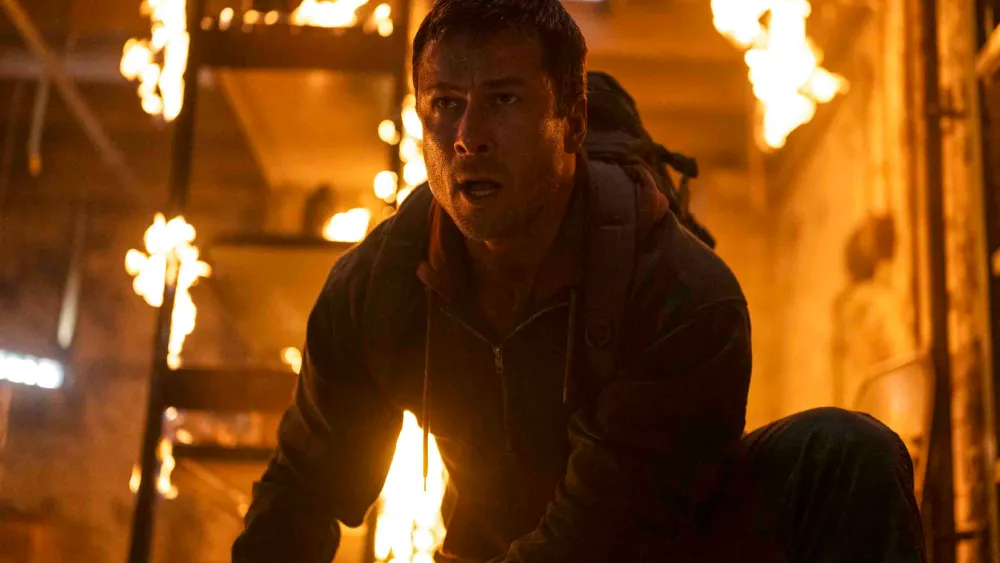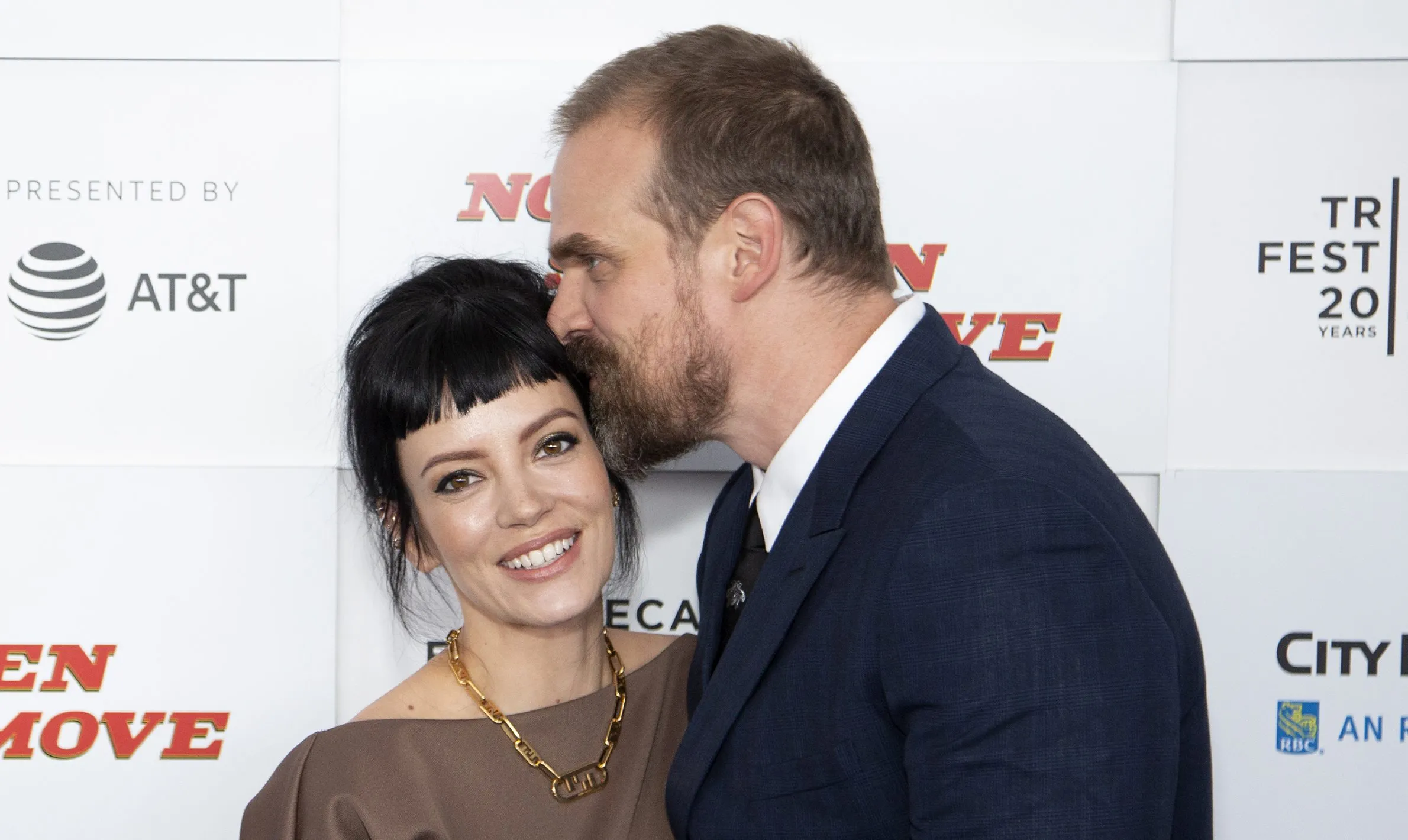Copyright Variety

In the 1980s, science-fiction movies reveled in presenting the future as a grand bad dream of where we were headed — movies like “Blade Runner,” “Outland,” “The Terminator,” and “Escape from New York.” One of those films was “The Running Man,” adapted from Stephen King’s 1982 novel (written under the pen name Richard Bach) about a homicidal TV competition show, and a book that now looks like the missing link between “Network” and “The Hunger Games.” Released in 1987, “The Running Man” was a lumbering Arnold Schwarzenegger movie. You could say that Edgar Wright, the director of the new version, has made it into a decent Bruce Willis movie. The staging is crisp with sadistic timing, the human element rarely overshadows the rigorously staged mayhem, and Glen Powell, as a family man from the lower depths who becomes the survivor hero of a deadly competition show that’s like “The Most Dangerous Game” updated to the age of reality-TV insanity, uses his small darting eyes and buff bod and quick delivery to conjure the vicious spirit that is sometimes, according to the logic of a film like this one, decency’s only recourse. Powell, born and raised in Texas, knows how to chisel his features into a mean glare of revenge. But there’s still something fundamentally sweet about him; he’s doing an impersonation of ’80s-action-hero heartlessness. And even that’s the simplistic side of the movie. What it leaves out is that Edgar Wright is a filmmaker who never met a concept he couldn’t overelaborate into something strenuously showy and top-heavy and in-your-face. Wright’s previous film, “Last Night in Soho,” started out as a seductive reverie of Swinging London before descending into a dark-side-of-everything monster bash of such wretched excess it just about gave me PTSD. “The Running Man” is more restrained; it hangs together and mostly obeys the rules of mainstream commercial cinema. Yet it’s clear that what drew Wright to the project was his infatuation with the sci-fi sociology of a retro-future USA in which murder is entertainment, the masses are fed this stuff like a drug to keep them in line, and the only way out of the cycle of violence-as-mind-control is for one man to summon the guts and glory to blast it all apart. The weird thing about seeing “The Running Man” today is that in the ’80s (and the ’90s, too), all those dystopian visions were rooted in a feeling of future shock. They were wake-up calls from the fascist beyond. America feels closer to those realities now, yet because of that, and because we’ve seen so many garishly downbeat sci-fi movies, dystopia is now the air that our imaginations breathe. There’s precious little shock value left to the decadent society the new “Running Man” unveils. Look, here’s Bobby T., the show’s dapper ringmaster host, played by Colman Domingo with the big grin and swanning camp relish of a media pied piper of amorality. Here’s the studio audience howling at everything he says like a horde out of “Idiocracy.” Here’s the stacked-deck stakes of the hunt — three contestants, who have to survive for 30 days, heading anywhere they can to stay alive, but hot on their tail are the Hunters, a task force of elite assassins led by Evan McCone (Lee Pace), who wears a creepy invisible-man mask underneath his aviators and will hunt you down before you’ve made it through your first week. And here’s the power behind it all: Dan Killian, played by a chomping-grinned Josh Brolin, the corruption coming off him like steam. Killian is the head of the Network (and therefore the most powerful person in the United States — I guess there are some prophecies that don’t come true), who meets with Powell’s Ben Richards and offers him a deal with the devil. He wants Ben to be his star “Running Man” contestant, to draw on his reservoir of anger and elude his captors, all to boost the ratings. And here’s how it works: The audience roots for the Hunters to prevail, but the more a contestant survives, the more he becomes a rebel celebrity, which just feeds the audience’s desire to see him blown away. Because that’s going to be a real entertainment climax. Ben, fired from one job after another for the sin of “insubordination,” lives in a prison-like apartment with his wife, Sheila (Jayme Lawson), and young daughter, who in the opening scenes has the flu, which means that she may die. They can’t afford medicine or a doctor (now that’s starting to sound like a true prophecy). For that reason alone, Ben decides to go to the Network and audition for its slate of exploitation game shows, where the payoff exists in direct proportion to the danger. He doesn’t want to end up on “The Running Man,” but that’s what Killian wants. He takes one look look at Ben and sees a born proletarian contestant-as-angry-action-star. The two have struck a deal before Ben even starts running. There’s a repetitive monotony to the structure. Ben keeps running into people who assist him, like his old friend Molie (William H. Macy), who sets him up with a fake ID and mustached-geek disguise. (The film draws a bit on Powell’s “Hit Man” persona as an identity chameleon.) There’s a spectacular sequence set in a UVA hotel in Boston, where Ben evades captures by blowing up the entire place from the basement, which is very satisfying in an old-school action-junk way. But Wright, trying to dig more than Arnold’s movie did into the essence of King’s novel (King is one of the new version’s executive producers), has more on his mind than “explosive” confrontations. He devotes a lot of time to an episode centered on Michael Cera as a jittery writer of zines obsessed with his late policeman’s father’s hot-dog cart (that’s what his dad had to do after he was drummed out of the force for being an honest cop), and to Emilia Jones as a hyperkinetic civilian Ben targets on the road for a quick escape. The climactic sequence set aboard a military aircraft, with Ben facing off against the Hunters, would have been simpler in a Bruce Willis thriller, and more satisfying. As Ben survives, he becomes an insurrectionary leader, branded with the slogan “Richards lives!” But the reason this seems overblown is that the movie is trying to have it both ways. It wants to portray murderous reality TV as the height of social derangement, a fraud to hook the masses. But it also says that TV, with the right hero, could be a springboard for revolution. In “The Running Man,” that fantasy plays like the pulpiest of dreams.



